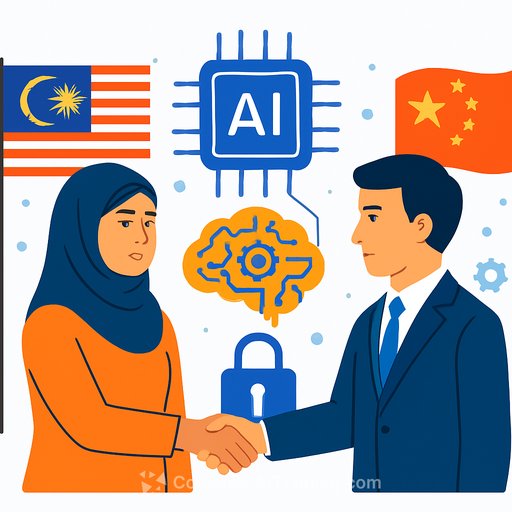What We Risk When AI Systems Remember
AI assistants are shifting from short chats to long relationships. The pitch: systems that "get to know you over your life" will be more useful and personal. The engine behind that shift is non-parametric memory-data stored outside the model that can be pulled in later.
OpenAI first rolled out "saved memories" in February 2024, then expanded it in April 2025 to reference all past conversations, with broad availability in June 2025. Google added memory to Gemini in February 2025 and personalization as a feature in March 2025. xAI followed with long-term memory in April 2025. Anthropic added recall of past conversations in August 2025. Different vendors made different calls on how memory is stored, when it's used, and how much control you get.
As this goes mainstream, the real question isn't "can it remember?" It's "does this actually help people without putting them at risk?"
How AI starts to "know" you
Historically, LLMs could only "remember" within a context window-like human working memory. Long-term memory changes that by writing to external storage and pulling it back when relevant.
Designs vary. Gemini can trigger memory lookups automatically or when users reference earlier topics. OpenAI's early approach used an editable memory log; the April 2025 update let the system reference all past chats. What looks like convenience can also create a profile of you over time-across work, health, politics, values, and relationships-unless it's scoped and controlled.
Personalization increases influence
Several studies show a clear pattern: personalization boosts AI influence. A 2024 r/ChangeMyView experiment reported personalized responses were up to 6x more persuasive than human-written comments. A randomized control trial found that access to personal data increased agreement rates in debates. Another study showed personalized ChatGPT messages beat non-personalized ones.
These setups used modest data-public posts, basic demographics, and partial personality traits-yet still saw big gains. With "extreme personalization" built on details users voluntarily share, the influence only grows. That's not automatically bad, but it does shift the risk profile.
It also raises consent issues. The Reddit study drew backlash because users didn't know they were subjects, and the researchers ultimately didn't pursue publication. People don't like being profiled without a say.
The thin line between helpful and manipulative
If long-term memory increases personalization, and personalization increases influence, then the boundary between help and manipulation gets thin. Usefulness drops the moment the assistant's influence becomes opaque or misaligned with user interests.
Two baselines are non-negotiable: real transparency and meaningful consent. Defaults and design details matter more than marketing statements.
What transparency should actually mean
Spell out storage and retrieval rules in plain language. What data gets stored? Which categories? For what purposes? How long? Who can access it? Where is it processed? How is it secured? Can users edit or delete it-and does deletion propagate to backups?
High-level statements like "we avoid health details" are not enough. What counts as sensitive? Health, finances, sexual data, minors, legal issues, immigration, political opinions, religious beliefs? Without a clear taxonomy, users are guessing.
What meaningful consent should look like
Defaults matter. OpenAI enabled memory for free users by default (outside the EU). Google's personalization is also on by default and requires opt-out. Telling users "don't enter anything you don't want remembered" offloads risk onto the person with the least context and the most to lose.
A recent Meta AI incident exposed how fragile user trust is when private prompts surface publicly. Two takeaways: people share deeply personal information with assistants, and a single poor design choice can burn them.
Practical guardrails for teams building memory
- Default-off memory with clear onboarding. Make consent explicit, reversible, and scoped.
- Scoped memory by domain and project. OpenAI and Anthropic's project-specific memory is a useful pattern: keep work, personal, and projects separate.
- Per-item consent and editability. Route proposed memories to a "memory inbox" users approve, reject, or redact.
- Time-to-live and review cycles. Auto-expire sensitive memories; prompt periodic cleanup.
- Sensitivity taxonomy and filters. Define categories beyond "health" and block by default; allow narrow, temporary exceptions.
- Retrieval rules and citations. Show when a response used memory and which memory it referenced.
- Full memory controls. Search, export, delete, and an audit log of what was stored, when, and why.
- Identity and context boundaries. Isolate work from personal, and separate personas; no cross-context blending.
- Reduce persuasive tactics on sensitive topics. Rate-limit emotional mirroring and value-laden nudges.
- Local or encrypted storage options. Encrypt at rest and in transit; keys under user control where feasible.
- One-click purge that actually purges. Deletions propagate to backups and derivatives.
- Evaluate for undue influence. Red-team for manipulation; track metrics beyond engagement.
For users and teams: a quick playbook
- Scope what the assistant can remember. Prefer project memory over general memory.
- Ask the model, "What memory did you use?" Expect citations or summaries.
- Schedule a monthly memory cleanup. Delete stale or sensitive items.
- Separate accounts for work and personal. Don't cross streams.
- Avoid sharing values, politics, and private histories unless absolutely necessary for the task.
- Check settings. If memory is on by default, decide what you actually want stored.
- For dev teams: add persuasion tests, ship a visible kill switch, and publish your data taxonomy.
Why this matters
Human relationships have boundaries. Few people know our entire life story, and that limit naturally caps any one person's influence. An assistant that remembers everything removes that cap.
The lawsuit over the death of 16-year-old Adam Raine highlights the stakes. The complaint points to persistent memory that stockpiled intimate details to build a psychological profile and keep him engaged. Causality is complex, but the signal is clear: persistent, unbounded memory can amplify risk.
A better default
Define the ideal assistant relationship: context-aware, respectful of boundaries, and biased toward user autonomy. Helpful is good; clingy is not. Memory should serve the task and the user-not the other way around.
Project-scoped memory is a strong move. Keep it narrow, inspectable, and easy to turn off. Make consent a habit, not a checkbox.
Bottom line
We're moving from single-use chats to ongoing relationships with AI. Before we hand over our histories, set hard rules on what gets stored, how it's used, and who decides.
With a clear framework, memory can make assistants genuinely useful. Without it, memory drifts into quiet pressure-using what it knows about us, against us. If AI is going to remember, it should help us-never turn knowledge into leverage.
Want structured, practical upskilling? Explore certifications and courses built for real work with AI at Complete AI Training.
Your membership also unlocks:






